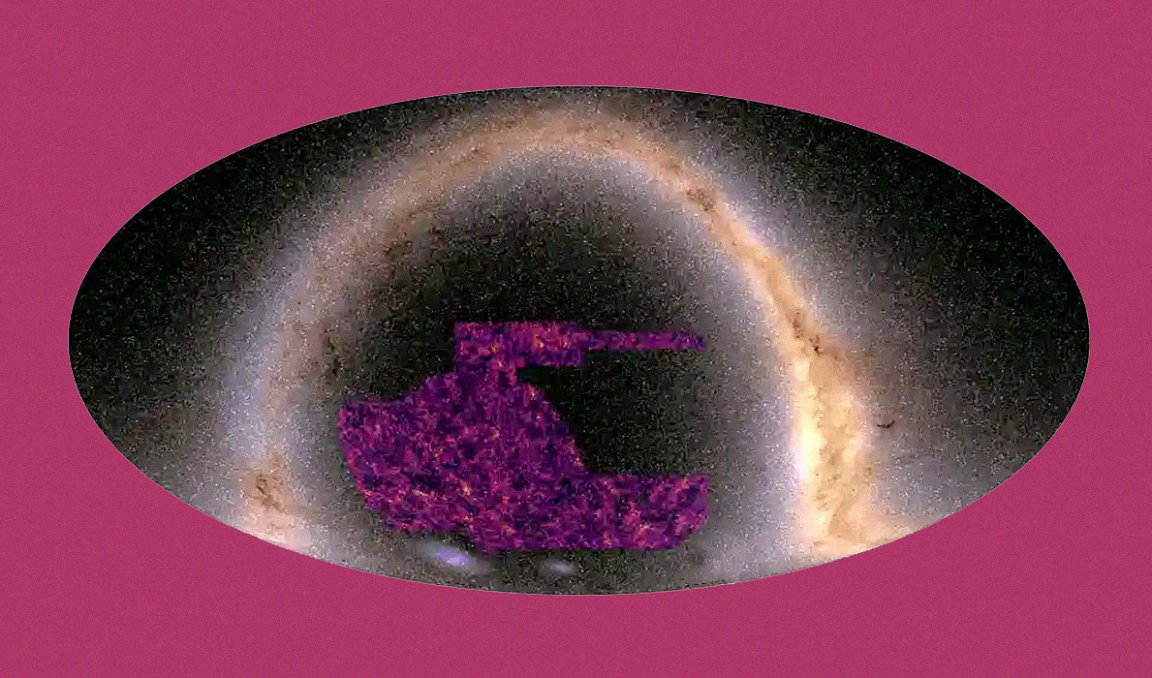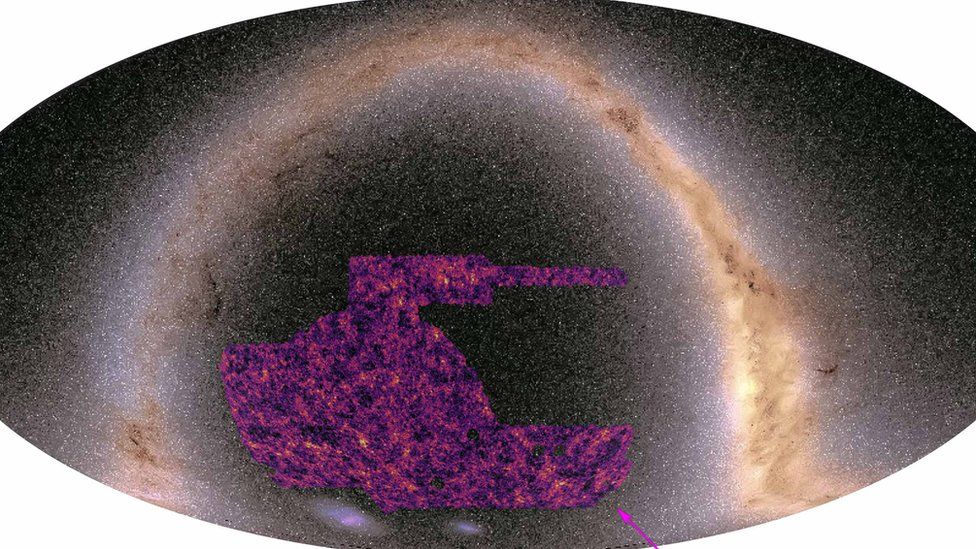
According to a new detailed map of dark matter, the universe may be smoother and more spread out than theories have previously predicted, the BBC reports.
The survey, which covered about a quarter of the southern hemisphere’s sky, may serve to undermine Einstein’s theory of general relativity and could potentially force us to alter understanding of the cosmos.
“If this disparity is true then maybe Einstein was wrong,” École Normale Supérieure researcher Niall Jeffrey, who worked on the map, told the BBC.
“You might think that this is a bad thing, that maybe physics is broken,” he said. “But to a physicist, it is extremely exciting. It means that we can find out something new about the way the universe really is.”
Scientists believe dark matter makes up around 80 percent of the stuff found in the universe. Yet it is still a great mystery, as we still don’t know what it is made of or how exactly it interacts with other matter.
We do, however, know that dark matter distorts light emanating from faraway stars. The greater this effect, scientists believe, the greater the concentration of dark matter present.
The new map, created by an international team of researchers at the Dark Energy Survey Collaboration, is the largest and most detailed of its kind to date. Using data collected by the Victor M Blanco telescope in Chile, the team mapped some 100 million galaxies.

The resulting map shows that galaxies make up much larger super-structures. The brightest areas are the densest areas of dark matter, made up of superclusters of galaxies. The black parts are cosmic “voids,” areas where our current laws of physics may not apply.
To Jeffrey, it’s an exciting new moment in our understanding of the Universe, having “unveiled vast new swathes which show much more of [dark matter’s] structure,” as he told the BBC. “For the first time we can see the universe in a different way.”
Using theories set forth by Einstein, astronomers have been able to predict how matter has spread over the 13.8 billion years of the universe, starting shortly after the Big Bang.
Those predictions, however, are a few percent off from the new observations made by the Dark Energy Survey.
“We may have uncovered something really fundamental about the fabric of the universe,” Carlos Frenk, professor at Durham University, who worked on current cosmological theories, told the British broadcaster.
With Einstein’s theories building the groundwork, Frenk helped determine the spread of matter in the universe.
The new map did come as a bit of surprise.
“I spent my life working on this theory and my heart tells me I don’t want to see it collapse,” Frenk told the BBC. “But my brain tells me that the measurements were correct, and we have to look at the possibility of new physics.”
But according to Frenk, it’s not quite time to dismiss Einstein’s theory. “The big question is whether Einstein’s theory is perfect,” he said.
“It seems to pass every test but with some deviations here and there,” he added. “Maybe the astrophysics of the galaxies just needs some tweaks.”
READ MORE: New dark matter map reveals cosmic mystery [BBC]
More on dark matter: A Blob of Dark Matter Appears to Be Floating Outside Our Galaxy